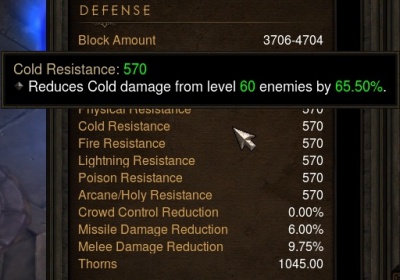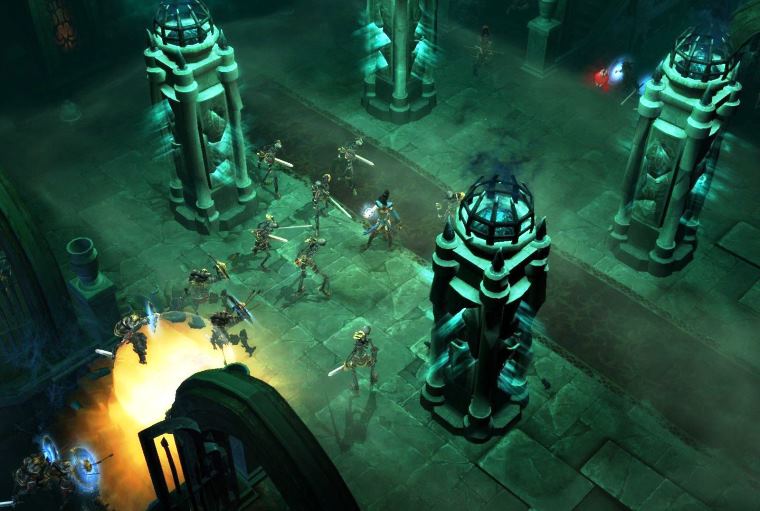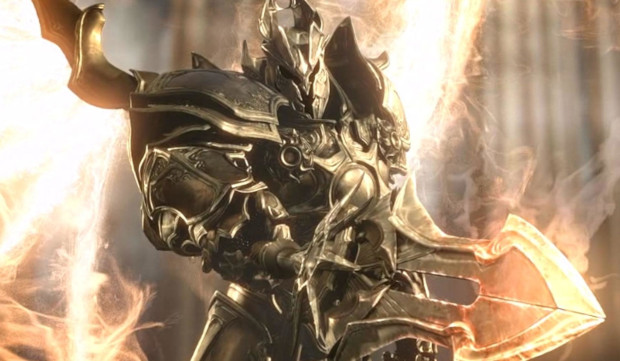Diablo version 1 – where it all started
Diablo – the action role-playing hack and slash video game that set the benchmark for many RPG games that followed! It pushed face-paced and real-time action up front. Gamers battle through sixteen dungeon levels to face Diablo, Lord of Terror. Diablo 3 is the latest addition to the franchise.
Diablo 2 – the sequel is born
The dark fantasy mortal realm of Khanduras and town of Tristram re-emerged in 2000 with Diablo 2. The new game's enhanced functionality brought offerings of more Classes, environments, loot, abilities, and combat.
Diablo 3 – emergence of a new concept
Damage Calculator Greenimba#2873's Damage calculator/comparing tool for Diablo 3 Reaper of Souls Current,Change,New,Base APS of different weapons: Mainhand,Minimum Damage 1,1350,1 Handed,2 Handed Maximum Damage 1,1847,Spear,1,2,Sword,1,15 Offhand,Minumum Damage 2,Sword,1,4,Axe,1,1 Maximum Damage. The people who are giving out the right info are being downvoted, so it looks like most people think the%dmg roll does not include the base damage when it in fact does. Rerolling%DMG will almost always be better unless you rolled an extremely low damage range, like up to 1450 on a 2H. But, it is best to do the calculation yourself.
Diablo 3 arrived in 2012, bringing significant functionality and controversial design differences that remain to this day. Blizzard introduced game-changing patches and an expansion pack. This has created a much-improved game.
Story and cinematography
Both versions include a cinematic lead-in before each act. Diablo 2 focused on the actions of the Wanderer, and building anticipation. This enabled the player to own their story through the gameplay more than through the cinematic element. Diablo 3's cinematography focused on Leah's tale. Following a good deal of character development, disappointment occurred for some when she emerged as an antagonist in Act 4.
2) +damage% on weapons only rolls up to 10% now, instead of the 50% before 2.0. If you just get CC on rings, gloves, and OH, chances are CD gem will be considerably better than a ruby in weapon. 3) Damage values give exponential gain. The more you have of one stat, the more dps you gain from the others. Individual stats are mostly linear. Attackers heal for up to 3% of their maximum Life when damaging the marked enemy. Note: Information on this page is based on a level 70 character. 2) +damage% on weapons only rolls up to 10% now, instead of the 50% before 2.0. If you just get CC on rings, gloves, and OH, chances are CD gem will be considerably better than a ruby in weapon. 3) Damage values give exponential gain. The more you have of one stat, the more dps you gain from the others. Individual stats are mostly linear.
Soundtrack
Both games feature solid soundtracks. However, many veteran gamers prefer Matt Uelmen's haunting and high-verb score of soft choir, low piano key play and guitar riffs for Diablo 1 and 2.
Diablo 3 Dmg Vs Statsjbrown Pro

Tone
Diablo 2's tone was dark – a sombre world of innumerable evils and putrid foe, all unified in creating a lingering sense of horror. A game possessing textured and unique atmospherics with a storyline that keeps out of your way. Conversely, Diablo 3's tone is lighter and more abstract. Graphical cues are similar to the World of Warcraft, with rounder shapes, softer edges and more intense colors. Some argue this has created a less distinctive art style more reminiscent of familiar MMOs.
Loot, algorithm and legendary items
A focal point of the earlier games, loot could be found in chests, be bought at stores of varying kinds, or be collected from a fallen foe. There were thousands of possible combinations of magical effects.
The rarity and power algorithm of Diablo 2 was sufficiently well balanced to make rare and legendary items uncommon enough to enhance value, but not so available as to become dull or lose importance. You could also penny-pinch, sell items at stores and save your gold to buy more desired items at shops or 'gamble' on an item of unknown value at specific vendors.
The Auction House and shops
Conversely, Diablo 3 started out loot-starved upon its original release. Hours of play did not organically provide a single legendary item, with purchase in the broken economy of the Auction House the only viable option. Blizzard later ditched the Auction House, making item drops notably more generous. This made it commonplace in later levels to have several legendary items fall from a single slain foe, devaluing them.


Diablo 3 Dmg Vs Statsjbrown Total
Shops became somewhat redundant in Diablo 3. Almost everything sells for a similar low price, with mostly lower-end item availability. This makes crafting your only viable non-combat option for better loot.
Mechanics
Many minor mechanics of Diablo 2 were removed in 3 – like keys to unlock certain chests, and needing lots of town portal and identify scrolls, and of having some kind of risk/reward or trade for identifying items. Diablo 3 did away with all this, making the idea of identifying rather pointless.
Potions, and stamina
Diablo 2 had a plethora of potions, including some for stamina and thawing that were rather useless. Diablo 3 removed potions, save for the cool-down-based potion. It also incentivised passive skill build and item-based restoration and introduced health orbs from slain foe.
The stamina bar
The most puzzling mechanic introduced in Diablo 2 was the stamina bar. It became a limiter to progression. Standing, walking, and drinking stamina potions refilled it but running drained it. Blizzard removed the bar in Diablo 3.
Every level gained in Diablo 2 provided attribute points to permanently enhance the core statistics of your character. This was also so with the skill tree, where you needed to spend points to gain skills and unlock new ones at specific milestones. Diablo 3 did away with the choice of progression almost entirely and made skills switchable on-the-fly once unlocked by level only. However, this makes every character at each level somewhat identical, save for load-out and equipment.
Skill variants
Diablo 3 introduced a broader selection of skill variants. It also simplified stats into core attributes, while Diablo 2 gets into the nitty-gritty of what each item does.
Diablo 3 Dmg Vs Statsjbrown Intel

Weapons

Tone
Diablo 2's tone was dark – a sombre world of innumerable evils and putrid foe, all unified in creating a lingering sense of horror. A game possessing textured and unique atmospherics with a storyline that keeps out of your way. Conversely, Diablo 3's tone is lighter and more abstract. Graphical cues are similar to the World of Warcraft, with rounder shapes, softer edges and more intense colors. Some argue this has created a less distinctive art style more reminiscent of familiar MMOs.
Loot, algorithm and legendary items
A focal point of the earlier games, loot could be found in chests, be bought at stores of varying kinds, or be collected from a fallen foe. There were thousands of possible combinations of magical effects.
The rarity and power algorithm of Diablo 2 was sufficiently well balanced to make rare and legendary items uncommon enough to enhance value, but not so available as to become dull or lose importance. You could also penny-pinch, sell items at stores and save your gold to buy more desired items at shops or 'gamble' on an item of unknown value at specific vendors.
The Auction House and shops
Conversely, Diablo 3 started out loot-starved upon its original release. Hours of play did not organically provide a single legendary item, with purchase in the broken economy of the Auction House the only viable option. Blizzard later ditched the Auction House, making item drops notably more generous. This made it commonplace in later levels to have several legendary items fall from a single slain foe, devaluing them.
Diablo 3 Dmg Vs Statsjbrown Total
Shops became somewhat redundant in Diablo 3. Almost everything sells for a similar low price, with mostly lower-end item availability. This makes crafting your only viable non-combat option for better loot.
Mechanics
Many minor mechanics of Diablo 2 were removed in 3 – like keys to unlock certain chests, and needing lots of town portal and identify scrolls, and of having some kind of risk/reward or trade for identifying items. Diablo 3 did away with all this, making the idea of identifying rather pointless.
Potions, and stamina
Diablo 2 had a plethora of potions, including some for stamina and thawing that were rather useless. Diablo 3 removed potions, save for the cool-down-based potion. It also incentivised passive skill build and item-based restoration and introduced health orbs from slain foe.
The stamina bar
The most puzzling mechanic introduced in Diablo 2 was the stamina bar. It became a limiter to progression. Standing, walking, and drinking stamina potions refilled it but running drained it. Blizzard removed the bar in Diablo 3.
Every level gained in Diablo 2 provided attribute points to permanently enhance the core statistics of your character. This was also so with the skill tree, where you needed to spend points to gain skills and unlock new ones at specific milestones. Diablo 3 did away with the choice of progression almost entirely and made skills switchable on-the-fly once unlocked by level only. However, this makes every character at each level somewhat identical, save for load-out and equipment.
Skill variants
Diablo 3 introduced a broader selection of skill variants. It also simplified stats into core attributes, while Diablo 2 gets into the nitty-gritty of what each item does.
Diablo 3 Dmg Vs Statsjbrown Intel
Weapons
In Diablo 2, weapons were generally your default attack, and you would use them as expected. Your weapon was your mana-free backup attack for all classes, and a primary need for melee builds. In Diablo 3 you have a growing set of mana-free abilities that convert items into other things. A spear transforms into a lightning strike and a mace into a fireball. This singlehandedly makes your weapon the essential element of your entire character.
Determining actual damage in Diablo 3 is left somewhat to chance. The player is left trusting the game's 'up or down' arrow to know if their character will be improved, rather than examining an item's particular effects.
Jewels, runes, and charms
Diablo 2's slotted item fillers such as jewels, as well as runes and other items, were more and varied. These were simplified in Diablo 3 for a five-color gem system. In Diablo 2 you would tailor your equipment load-out around your permanently developed character. In Diablo 3 you tailor your character ability load-out around your all-powerful weaponry and equipment.
Technology and engine
Diablo 3 has benefitted from more advanced design tools, engines, and a wealth of experience and know-how. It has higher frame rates, resolutions and true polygonal graphics. The result is a more visually pleasing and responsive game. Work on the UI and key mapping has allowed for more abilities through a single button press. This compares to the frantic F-key or mouse wheel manipulation found with Diablo 2, which also has low-res 2d sprites and fixed resolutions operating at a choppy 25 frames per second.
Diablo 2 and 3 Summary
Diablo 3's necessary account setup and shared storage have streamlined the game. It is always online (even when playing solo), admittedly has no mod-ability, but is better at preventing cheating. The UI, click hotspots and hotkeys are improved, and the game is slicker and new-player friendly. It is much more focused on end-game activities. Diablo 2 was more modifiable and tweakable and could be played offline but had an older, open engine that made cheating easier. However, old-school Diablo 2 adepts tend to prefer the game's more honest and grimmer, authentic past.
Which game do you prefer and why? Let us know in the comments below! Paul carrack greatest hits.
